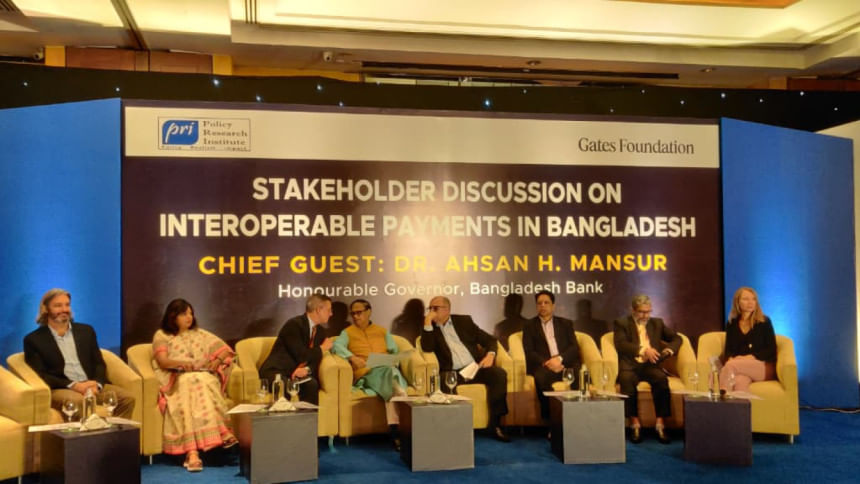Staff Correspondent
Published:2025-09-16 10:48:08 BdST
Stride towards cashless economyBB to launch instant payment platform with Gates Foundation support
Bangladesh Bank, with the support from Gates Foundation, is preparing to launch a unified interoperable instant payment system that will connect all banks, mobile financial services (MFS), microfinance institutions, and upcoming digital banks under a single platform, Governor Ahsan H Mansur announced on Monday.
Speaking at a programme titled “Stakeholder Discussion on Interoperable Payments in Bangladesh”, the governor said the system is aimed at reducing the country’s growing dependence on cash, increasing financial transparency, and pushing Bangladesh towards a cashless economy.
Growing cash demand a concern
Bangladesh’s cash demand has been increasing at an annual rate of 10% for several years.
According to Mansur, this is not only costly but also harmful for economic governance. “The cash-based economy is expensive for us. The banking sector loses about Tk20,000 crore every year, while the government loses nearly Tk1.53 lakh crore in revenue,” he said.
By enabling seamless person-to-person and institution-to-institution transactions, the interoperable platform will allow payments to be made instantly from mobile wallets, bank accounts, or non-bank financial accounts to any other account in the system.
Learning from past failures
The governor acknowledged that earlier attempts to launch an interoperable payment system had failed. However, this time Bangladesh Bank is drawing on proven international models.
“Similar systems have been tested in countries like Pakistan with highly positive results. Those experiences serve as both inspiration and lessons for us,” Mansur said.
Currently, Bangladesh’s digital payment landscape is fragmented, with services such as bKash, Nagad, and internet banking operating in silos. The new system is expected to unify these into a national platform that simplifies and accelerates financial transactions.
Reducing risks and corruption
Governor Ahsan H Mansur also highlighted that widespread cash use fuels corruption, robbery, and illicit transactions. “With the introduction of a cashless interoperable system, corruption, mugging, and illegal financial dealings will decline significantly. This will strengthen economic growth, enhance revenue collection, and improve public safety,” Mansur said.
Bangladesh has already achieved significant progress in financial inclusion, with 64% of the population now connected to the formal financial system. However, 35% to 40% remain excluded, especially in rural areas.
The governor stressed that extending services to rural populations must be a priority.
To that end, Bangladesh Bank has made QR code display mandatory for licensed businesses, encouraging customers to make direct digital payments without withdrawing cash. It has also increased the microloan limit in the MFS sector to Tk50,000, with plans for further expansion. Additionally, at least 50% of new agent banking agents will be women, a move expected to boost trust and financial inclusion in rural households.
Optimism for a cashless future
Executive Director Arief Hossain Khan delivered the keynote speech at the event, while Deputy Governor Zakir Hossain Chowdhury, Gates Foundation and IFS Bangladesh Head Snigdha Ali, and other stakeholders also spoke.
Expressing optimism, Mansur concluded: “With cooperation of the Gates Foundation and by using our own capacity, Bangladesh Bank will be able to launch an effective interoperable payment system within a short period.”
If successful, the initiative could be a turning point for Bangladesh’s financial sector - reducing costs, improving transparency, and laying the foundation for a truly cashless economy.
Unauthorized use or reproduction of The Finance Today content for commercial purposes is strictly prohibited.


